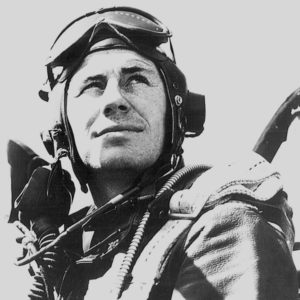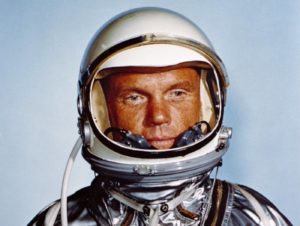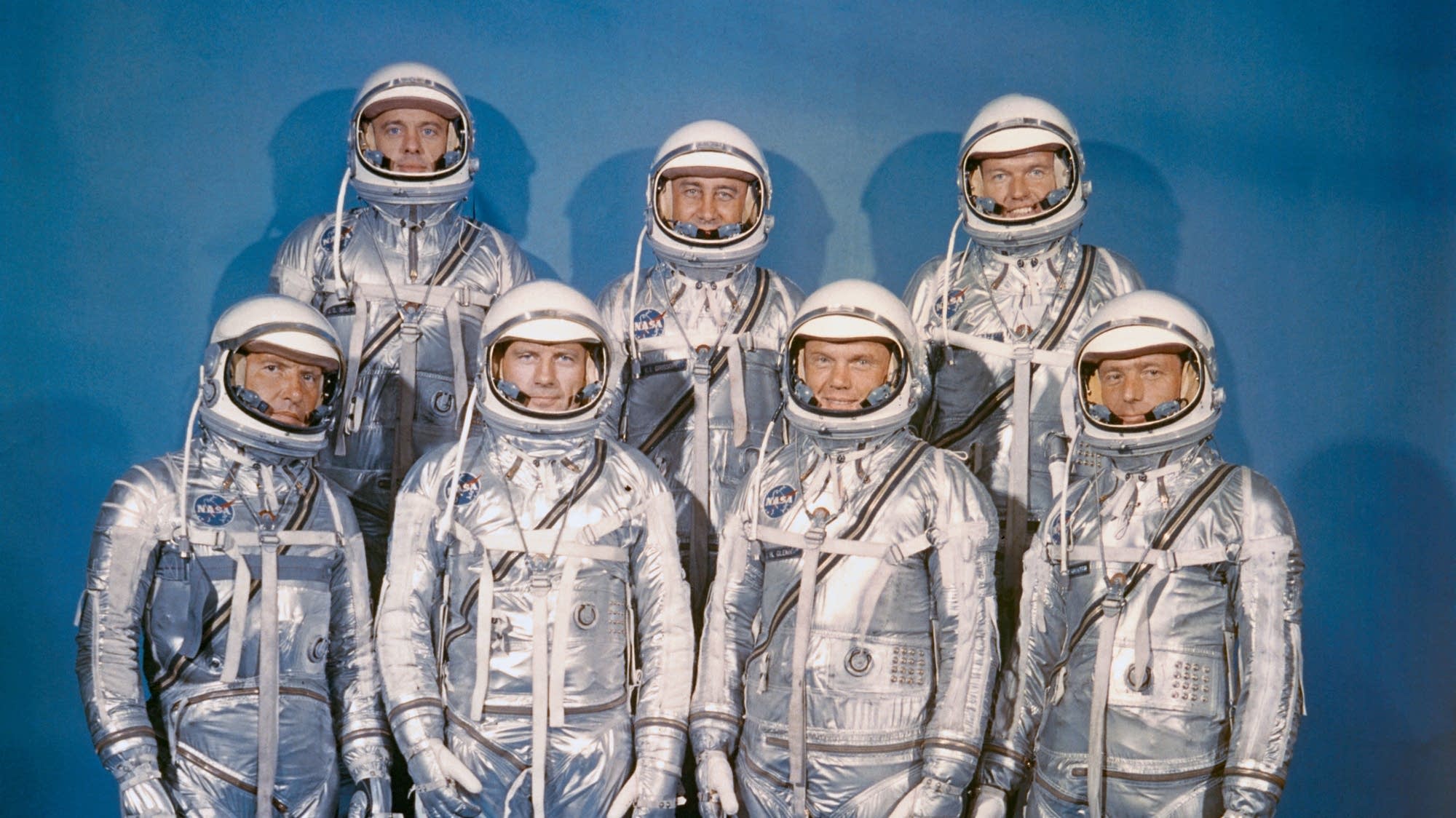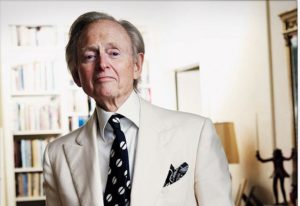I want a hero
Appeared in American History magazine, August 2011
I want a hero: an uncommon want,
When every year and month sends forth a new one,
Till, after cloying the gazettes with cant,
The age discovers he is not the true one
— Lord Byron, “Don Juan”

The country had reason to cheer on May 5, 1961, when Freedom 7 splashed down in the Atlantic Ocean carrying its precious cargo: Alan Shepard, the first American to go into space. After years of being bested by the Soviet Union, the United States finally had a competitive entry in the space race, and Shepard and the six other astronauts tapped for the Mercury program became national heroes. Writer Tom Wolfe, in his masterwork about those early days of the space program, The Right Stuff (1979), tried to figure out what kind of man would volunteer for a suicide mission on television—which is what the astronauts did with every flight.
Fifty years after that harrowing first venture into space, American History magazine asked me to talk to Wolfe about the Mercury program and the nature of heroism. My questions are in boldface below.
What makes a hero?
For me, it’s someone who brings tears to the eyes of the people. Think of David, of the David and Goliath story.
The last hero to our nation that I can think of is John Glenn. He was the first of the American astronauts to orbit the earth. When he returned and had his ticker-tape parade through Manhattan, you could see the cops standing at the intersections, crying. The idea was that he was defending us. It was like single combat.
That was the custom in ancient days. Two armies would meet and then, before they started fighting, each army would send its best man forward to fight. The winner would chop off the head of the other. Glenn, in his way, was engaged in single combat with his Soviet counterpart. These were the days of the space race.
So even though it wasn’t face to face, he was having a duel in the sky. And so the cops at the intersections in Manhattan looked at him go by and they cried, because, in one sense at least, he had “protected” us from the Soviets.
How about Alan Shepard, the first American in space?

His status was wiped out by Glenn.
The astronauts were in a competition to see who would be the first one in space. John Glenn was, of course, the star of the program, so popular with the public. He was always out there, running for exercise, running to stay in shape.
The other astronauts said, “Oh, I stay in shape by water-skiing.” But NASA was going to “peer assessment” to determine who would go first—the astronauts would vote. By that system, Glenn felt he was bound to lose [because of resentment from the other astronauts]. But Glenn’s time came.
What inspired you to write The Right Stuff?
To be honest, I was drawn in by a piece of illogic. There had been a psychological study of the astronauts—to see what qualities or environments produce astronauts. So they compiled a profile of the group. First of all, they were all white. They were all Protestant. They were all first sons. They were all born in small towns and came from intact families— no divorces.
I was highly interested because that was my background, except for the small town. I came from Richmond.

Was that a good recipe for a hero?
It was all false. One guy had hidden a divorce—a real strike against you in the military back then. One guy had been a juvenile delinquent. Most of them were first sons because they were born at the beginning of the Great Depression, when the birth rate dropped. Most families had two children and that gave you a 50-50 chance of being a first son. They were Protestant, because that was the general makeup of the military officer corps then.
There were explanations for all of these things. It wasn’t because of a combination of elements that heroism arose.
This was the image of the astronaut, though, and I wonder: “Why would you be braver and be a better pilot if your family is intact?”
Scott Carpenter had been a juvenile delinquent when he was growing up, but that didn’t hold him back. When you get to the later astronauts, like Neil Armstrong—the first man to walk on the moon—I think he was not a hero. He was a brave man, but he hadn’t saved us from anybody.
Are there different kinds of heroes?

I think there are people who are ethnic heroes or racial heroes.
Muhammad Ali is a great example of this. There’s no question that black people all over the world admired him and considered him a hero. You can see this in that great documentary, When We Were Kings, about his fight in Zaire. You see Ali arrive in Zaire and, clearly, he is worshipped as someone who stood up against white power. He had “protected” them in that sense.
Clearly, when the fans discovered Ali will be fighting a black boxer, they were crushed.
Ali was a hero, but not in the classical sense. He was a racial hero. So was Joe Louis. When Louis fought Max Schmeling before World War II, he was a tremendous hero. He was young and in great shape. Schmeling, of course, was white [and a representative of Nazi Germany]. When Louis won, there was a riot of exaltation in Richmond, Va., where I grew up. There was a section of town called Jackson Ward. The people there went berserk—in a happy way. They poured out in the street and danced and cheered and rocked cars back and forth—all without any intent of harm, of course. That was a real fight.
Are there intellectual heroes?
I would say no. I know there are Darwinists who regard their man as a hero, but he doesn’t fit my definition.
So define “hero” for us.
In my mind, it’s always someone who risked his life for us. But that’s probably just my view, a classic definition.
Someone can be a great role model, like a father, yet still not fit that classic definition of “hero.”
To me, the word “hero” is bandied about loosely these days.
Has there ever been a hero of Wall Street? I get asked by groups all the time to make motivational speeches: “Do you have ‘The Right Stuff ’?” I decline, but I want to ask, “How many of your fellow employees have died this year in the performance of their duties?”
“Risking of life” is a more stable measure of heroism for me. For a modern hero, I think more of Sully the Pilot [Chesley Sullenberger, the USAir pilot], who landed that airplane on the Hudson River. No one got hurt. He risked his life and saved everyone on board.
There was an accident recently where someone fell on the subway tracks and a guy jumped in to save him—and did. He was just a guy, but he fits my definition of hero.
